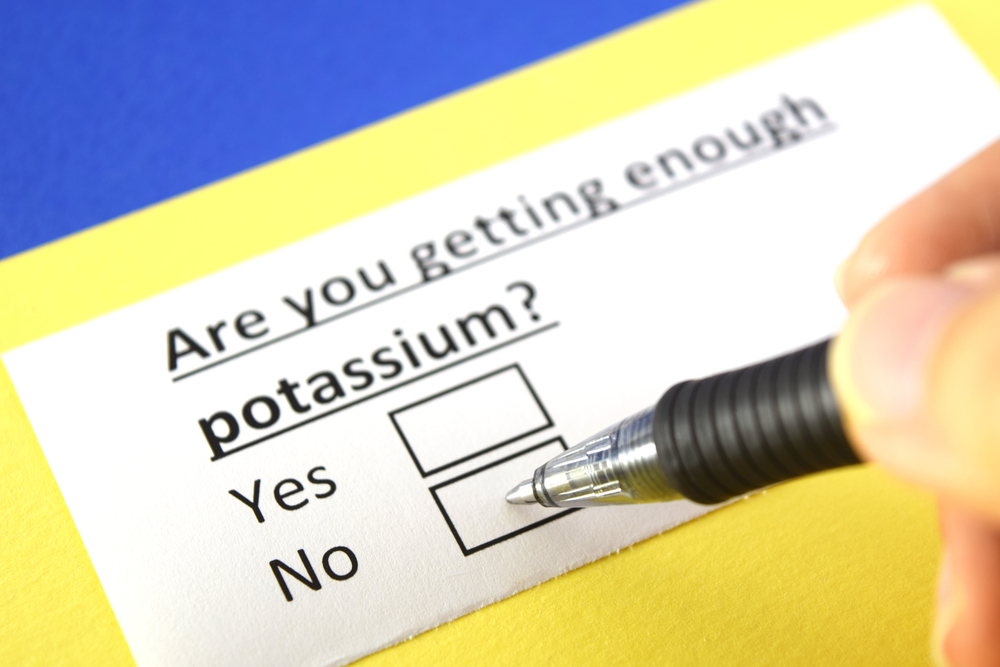The deficiency of potassium in the body can negatively affect muscles and nerves if left untreated. It can be cured by making simple lifestyle changes, in serious cases, the medical attention is required. Knowing the signs and symptoms of the condition can help you treat it earlier before it gets severe.
Potassium Deficiency
A potassium deficiency can also be called as hypokalemia. Potassium is essential for the human body as it helps in proper functioning of the muscular system. It is responsible for maintaining healthy heart muscles as well. The important ingredient acts as an electrolyte in the body. It generates and preserves nerve cells as well as assists in converting glucose to glycogen. Potassium is considered as a natural diuretic agent, that get absorbed during the process of digestion and the excess is excreted to maintain a pH level in the body.

Also Read: Experts Advice for Best Pre- and Post- Workout Snacks
Lack of potassium in the body can give rise to many medical conditions such as kidney stones, fatigue, allergies or acne. A consistent deficiency of potassium can also limit the growth. Your potassium level should not be dropped below 2.5mmol/L. Less than this can be very dangerous and will require immediate medical help.
Signs and symptoms of potassium deficiency
You will definitely feel fatigued if you are suffering from a potassium deficiency. It will make you tired all the time. Your body lacks energy and finds difficulty in completing physical tasks. Patients with potassium deficiency may experience muscle weakness or they may have a muscle spasm. People who regularly develop a potassium deficiency may have abnormal heart rhythm.
It can make your movement tough; a simple move can be very painful. Patients may have constipation and other problems related to the digestive tract. If these problems left unchecked, these can cause severe muscle damage, paralysis, kidney damage, or hypokalemia neuropathy. Therefore it is very important to consult a physician if experiencing any of these symptoms persist for a long time. You should check with your physician if these problems trouble you in any way.
Causes of potassium deficiency-
An individual develops a potassium deficiency when his/her body starts excreting more potassium than taking in. In moderate cases, the patient’s diet is found to be low in potassium; potassium-rich foods are required by the body for proper functioning. The human body needs an adequate amount of potassium for proper body function. Excessive sweating, vomiting, and diarrhea can also contribute to potassium deficiency in the body.
Use of some pharmaceutical drugs can lower the level of potassium in the body. Some medication limits the ability of the body to store potassium properly. Use of laxatives and diuretics can cause the body to excrete an excessive amount of potassium.
Treatment of potassium deficiency
One of the natural ways to treat potassium deficiency is to alter your diet. It can help eliminate potassium deficiency and reduce the risk of recurrence. Eat potassium rich foods like avocados, dried figs, seaweed, molasses, bran, peanut butter, wheat germ, oranges, bananas, spinach, lima beans peas, beans, carrots, milk, and kiwi.
People who are suffering from potassium deficiency sweat a lot. Such individuals need to rehydrate their system to relieve the symptoms of potassium deficiency. Avoid drinking water at this time as consumption of water flush out the system, rinse away more potassium. You can drink electrolyte solution or energy drinks that contain a high level of potassium. Such types of drinks can help in reducing or eliminating the deficiency.
Lack of potassium in the body give rise to constipation and diarrhea that are needed to be treated at the right time otherwise your body will continue to lose potassium. Patients with constipation and diarrhea are advised to eliminate hard food from their diet. These foods include spicy foods, red meat, or dairy products. You must not eat these foods until your system returns to normal. Also, do not take medications to treat diarrhea unless instructed by a physician. People with constipation are allowed to consume high fiber foods that help to relieve their distress. They should consume more fluids to help release the material trapped in their digestive tract. You can take constipation medications to get rid of these symptoms. Make sure that you take medication only after consulting a physician.
Also Read: Healthy foods for healthy heart
Medications are also available to treat potassium deficiency. The pharmaceutical industry is loaded with medications that are used for potassium deficiency treatment. Consult with your physician before using any potassium deficiency medication.



